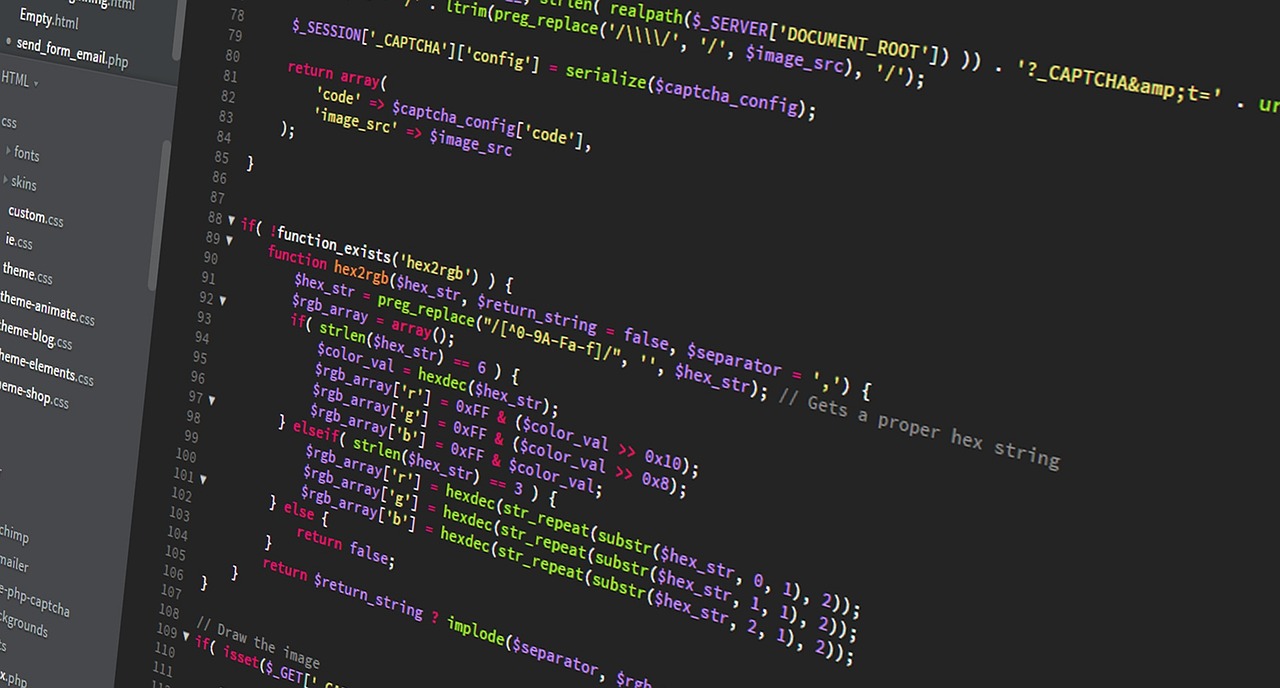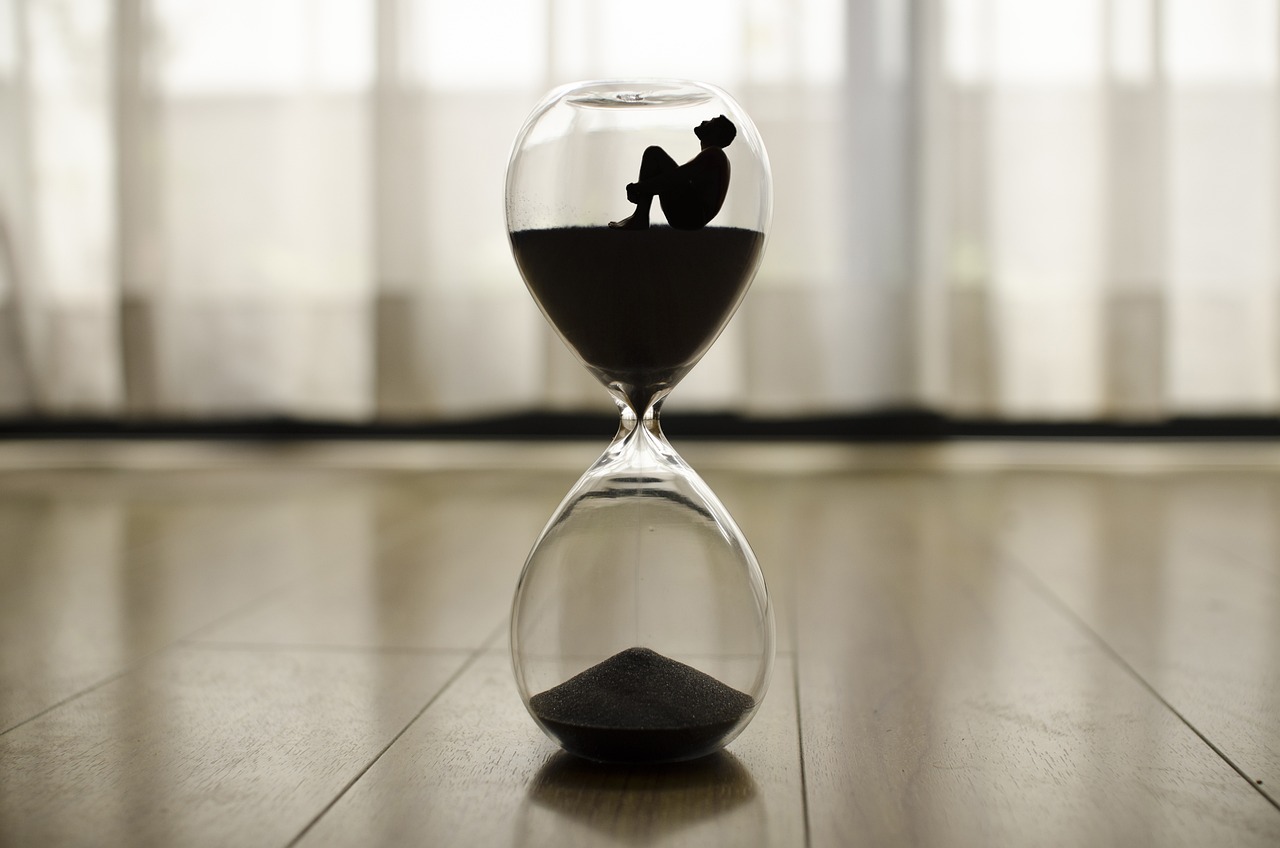How to Create a Personal Development Plan
A personal development plan is like a roadmap for your personal growth journey. It's a powerful tool that helps you set clear goals, identify areas for improvement, and take actionable steps towards becoming the best version of yourself. By investing time and effort in creating a personal development plan, you are essentially investing in your own future success and happiness.
Self-reflection is the cornerstone of creating a personal development plan. It involves taking a deep dive into your inner self to understand your strengths, weaknesses, values, and aspirations. By gaining clarity on where you currently stand and where you want to go, you can effectively chart a course for your personal growth journey.
Goal setting is another crucial aspect of a personal development plan. Setting SMART goals - specific, measurable, achievable, relevant, and time-bound - ensures that your objectives are clear and actionable. Aligning these goals with your personal values and long-term vision gives you a sense of purpose and direction.
Breaking down your goals into actionable steps is key to making progress. Creating a timeline with milestones helps you track your progress and stay motivated. By regularly reviewing and adjusting your plan, you can ensure that you are on the right path towards achieving your personal development goals.
Identifying the skills you need to achieve your goals is essential. Developing a plan to enhance those skills through learning and practice will not only help you reach your objectives but also boost your confidence and competence in various areas of your life.
Effective time management is crucial for personal growth. By prioritizing tasks, setting deadlines, and eliminating distractions, you can maximize your productivity and focus on activities that contribute to your development. Time is a valuable resource, and managing it wisely is key to achieving your goals.
Seeking feedback from mentors, peers, and professionals is invaluable. Their insights can provide you with a fresh perspective, help you identify blind spots, and guide you in making necessary adjustments to your personal development plan. Embracing feedback is a sign of growth and maturity.
Adaptability is a vital skill in personal development. Being open to change, embracing challenges, and adjusting your plan as needed will help you navigate obstacles and unexpected circumstances with resilience and flexibility. Remember, growth often occurs outside your comfort zone.
Self-care is non-negotiable when pursuing personal development goals. Prioritizing practices such as exercise, mindfulness, and relaxation is essential for maintaining your physical, mental, and emotional well-being. Taking care of yourself allows you to show up fully in your personal growth journey.
Celebrating your achievements, no matter how small, is important. Acknowledging your milestones boosts your confidence, motivates you to keep going, and reinforces positive habits. Celebrating success is a way of recognizing your progress and staying committed to your personal development goals.

Self-Reflection
A personal development plan is essential for setting goals and achieving personal growth. It involves self-reflection, goal setting, and actionable steps to improve various aspects of your life.
Self-reflection is the cornerstone of personal development. It requires looking inward to understand your strengths, weaknesses, values, and aspirations. By taking the time to reflect on your past experiences and current situation, you can gain clarity on where you stand and where you want to go. Self-reflection acts as a mirror that allows you to see yourself more clearly, enabling you to make informed decisions about your future direction.

Goal Setting
Setting goals is a crucial step in creating a personal development plan. It gives you a clear direction and purpose to work towards, motivating you to take action and make progress in various areas of your life. When setting goals, it's important to follow the SMART criteria - Specific, Measurable, Achievable, Relevant, and Time-bound. This ensures that your goals are well-defined, realistic, and have a deadline for completion.
Think of your goals as a roadmap that guides you towards your desired destination. Just like a GPS system, they help you navigate through challenges and obstacles, keeping you on track towards personal growth and success. By breaking down your long-term vision into smaller, manageable goals, you can create a step-by-step plan that makes your aspirations more achievable.
Consider creating a table to outline your goals, including columns for the goal description, target completion date, and progress status. This visual representation can help you track your goals effectively and stay organized throughout your personal development journey. Remember, each goal you set should be meaningful to you and contribute to your overall growth and fulfillment.
Reflect on what truly matters to you and align your goals with your values and aspirations. Ask yourself, "What do I want to achieve? Why is it important to me? How will it impact my life positively?" By answering these questions, you can ensure that your goals are not only challenging but also meaningful and rewarding. Remember, the journey of personal development is as important as the destination, so enjoy the process of setting and pursuing your goals.

Actionable Steps
A personal development plan is essential for setting goals and achieving personal growth. It involves self-reflection, goal setting, and actionable steps to improve various aspects of your life.
Reflect on your strengths, weaknesses, values, and aspirations to gain clarity on where you currently stand and where you want to go.
Set specific, measurable, achievable, relevant, and time-bound (SMART) goals that align with your personal values and long-term vision.
When it comes to turning your goals into reality, actionable steps play a crucial role. These steps are the building blocks that lead you towards your desired outcomes. By breaking down your goals into manageable actions, you can make progress steadily and consistently.
Imagine your goal as a puzzle. Each actionable step you take is like placing a piece of the puzzle in the right spot, gradually revealing the bigger picture of your success. It's not just about knowing where you want to go; it's about mapping out the route and taking the necessary steps to get there.
Creating a timeline for your actionable steps can provide structure and accountability. It's like having a roadmap that guides you through your journey of personal development. Regularly tracking your progress allows you to course-correct if needed and stay motivated by seeing how far you've come.
Identify the skills you need to achieve your goals and create a plan to develop and enhance those skills through learning and practice.
Manage your time effectively by prioritizing tasks, setting deadlines, and eliminating distractions to maximize productivity and focus on personal growth.
Solicit feedback from mentors, peers, and professionals to gain valuable insights, identify blind spots, and make necessary adjustments to your personal development plan.
Be open to change, embrace challenges, and adjust your plan as needed to stay flexible and resilient in the face of obstacles and unexpected circumstances.
Prioritize self-care practices such as exercise, mindfulness, and relaxation to maintain physical, mental, and emotional well-being while pursuing personal development goals.
Acknowledge and celebrate your milestones and achievements along the way to stay motivated, boost confidence, and reinforce positive habits for continued growth.

Skills Development
When it comes to personal development, skills development plays a crucial role in achieving your goals and enhancing your overall capabilities. It involves identifying the specific skills you need to succeed and devising a plan to acquire and hone those skills through dedicated effort and practice.
One effective way to approach skills development is by conducting a skills assessment to evaluate your current skill set and determine areas that require improvement or new skills that need to be acquired. This assessment can help you prioritize which skills to focus on and tailor your development plan accordingly.
Creating a structured plan for skills development involves setting clear objectives for each skill you aim to enhance. These objectives should be SMART - specific, measurable, achievable, relevant, and time-bound. By breaking down the skill development process into smaller, manageable steps, you can track your progress more effectively and stay motivated along the way.
Additionally, consider seeking out resources and opportunities for learning and practicing the skills you want to develop. This could involve enrolling in courses, attending workshops, seeking mentorship, or engaging in hands-on experiences that allow you to apply and refine your skills in real-world settings.
Furthermore, don't underestimate the power of consistent practice and feedback in honing your skills. Regular practice not only helps solidify your skill set but also allows you to identify areas for improvement. Seeking feedback from mentors, peers, or experts in the field can provide valuable insights and perspectives that can guide your skill development journey.
Remember, skills development is an ongoing process that requires dedication, persistence, and a growth mindset. Embrace challenges, stay curious, and remain open to continuous learning and improvement to unlock your full potential and achieve personal growth.

Time Management
Time management is a crucial aspect of creating a personal development plan. It involves effectively allocating your time to prioritize tasks, meet deadlines, and eliminate distractions in order to maximize productivity and focus on personal growth. By managing your time efficiently, you can ensure that you are making progress towards your goals consistently.

Seeking Feedback
Seeking feedback is a crucial aspect of personal development as it provides valuable insights and perspectives from others that can help you grow and improve. By actively seeking feedback from mentors, peers, and professionals, you open yourself up to constructive criticism, new ideas, and different viewpoints that can enhance your personal development journey.
Feedback acts as a mirror, reflecting areas where you excel and areas where you can improve. It helps you identify blind spots that you may not be aware of on your own. Constructive feedback allows you to see things from a different angle, challenging your assumptions and pushing you to consider alternative approaches to achieving your goals.
When seeking feedback, it's essential to approach it with an open mind and a willingness to learn. Be receptive to both positive feedback that reinforces your strengths and constructive criticism that points out areas for growth. Remember that feedback is a gift, and embracing it with gratitude can propel you forward in your personal development journey.
Creating a feedback loop where you regularly check in with your mentors, peers, and professionals ensures that you are on the right track and making progress towards your goals. Actively seeking feedback not only helps you improve specific skills or behaviors but also fosters a culture of continuous learning and development in your personal and professional life.

Adaptability
Adaptability is like being a chameleon in the ever-changing landscape of personal development. Just as a chameleon changes its colors to blend in with its surroundings, being adaptable means being open to change and ready to adjust your sails when the winds of life shift unexpectedly. It's about being flexible and resilient, able to pivot and embrace challenges with a positive mindset.
Imagine your personal development plan as a roadmap, guiding you towards your destination. However, roads can have detours, roadblocks, or even construction zones. Adaptability is your GPS, helping you navigate through these obstacles and find alternative routes to reach your goals. It's the ability to recalibrate your route without losing sight of your final destination.
Adaptability also involves learning from setbacks and failures. Just like a tree that bends with the wind to avoid breaking, being adaptable means bending but not breaking under pressure. It's about turning setbacks into stepping stones, using each challenge as an opportunity to grow stronger and wiser.
Think of adaptability as a muscle that you can strengthen over time. The more you practice being open to change and adjusting your course when needed, the more resilient you become. It's about building the mental agility to thrive in the face of uncertainty and emerge stronger from any unexpected curveballs that life throws your way.

Self-Care
A personal development plan is essential for setting goals and achieving personal growth. It involves self-reflection, goal setting, and actionable steps to improve various aspects of your life.
Self-care plays a crucial role in maintaining your overall well-being while pursuing personal development goals. Just like a plant needs water and sunlight to thrive, you need to nurture yourself to grow and flourish. Incorporating self-care practices into your daily routine can help you recharge, reduce stress, and enhance your resilience.
Self-care encompasses various activities that cater to your physical, mental, and emotional health. Engaging in regular exercise not only boosts your physical fitness but also releases endorphins that improve your mood and reduce anxiety. Mindfulness practices, such as meditation or deep breathing exercises, can help calm your mind and increase your focus.
Additionally, taking time for relaxation and leisure activities is essential for recharging your energy levels and preventing burnout. Whether it's reading a book, listening to music, or spending time in nature, find activities that bring you joy and relaxation.
Remember, self-care is not selfish; it is a necessary investment in yourself. By prioritizing your well-being, you are better equipped to handle challenges, stay motivated, and sustain long-term personal growth. So, make self-care a non-negotiable part of your personal development plan and watch how it transforms your journey towards self-improvement.

Celebrate Achievements
Celebrating your achievements is a crucial part of personal development. It serves as a reminder of how far you've come and motivates you to keep pushing forward. When you reach a milestone, take the time to acknowledge your hard work and dedication. Whether it's a small victory or a major accomplishment, celebrating it can boost your confidence and reinforce positive habits.
One way to celebrate achievements is by rewarding yourself. Treat yourself to something you enjoy, whether it's indulging in your favorite meal, buying that book you've been eyeing, or taking a day off to relax. This reward acts as positive reinforcement for your efforts and encourages you to continue working towards your goals.
Another way to celebrate is by sharing your success with others. Let your friends, family, or mentors know about your achievements. Their support and encouragement can amplify your sense of accomplishment and strengthen your relationships. Celebrating together creates a sense of community and shared joy.
Reflecting on your achievements is also important. Take the time to look back on how you overcame challenges, learned new skills, and grew as a person. This reflection not only boosts your self-esteem but also provides valuable insights for future goal setting and personal growth.
Furthermore, celebrating achievements can help you stay motivated during challenging times. By recognizing and celebrating even the smallest wins, you build momentum and resilience to tackle bigger challenges ahead. It's like fueling your inner fire to keep moving forward, no matter what obstacles come your way.
Frequently Asked Questions
- What is a personal development plan?
A personal development plan is a structured framework that helps individuals identify their goals, strengths, weaknesses, and aspirations. It involves self-reflection, goal setting, and actionable steps to improve various aspects of one's life.
- Why is self-reflection important in creating a personal development plan?
Self-reflection is crucial as it allows individuals to gain clarity on their current position, values, and future aspirations. By understanding oneself better, one can set meaningful goals and take steps towards personal growth effectively.
- How can I effectively set goals in my personal development plan?
To set effective goals, it is recommended to follow the SMART criteria - specific, measurable, achievable, relevant, and time-bound. Aligning goals with personal values and long-term vision is also key to success.
- Why is seeking feedback important in a personal development plan?
Seeking feedback from mentors, peers, and professionals provides valuable insights, helps identify blind spots, and allows for necessary adjustments to the personal development plan. Feedback is essential for continuous improvement and growth.
- How can I stay motivated while pursuing my personal development goals?
Staying motivated involves celebrating achievements, acknowledging milestones, and practicing self-care. By setting small, achievable goals, tracking progress, and maintaining a positive mindset, motivation can be sustained throughout the personal development journey.



















